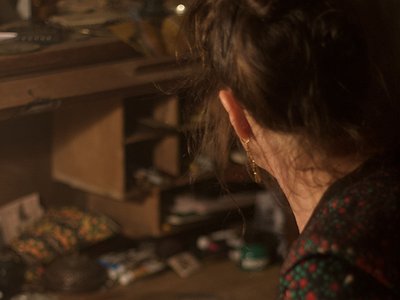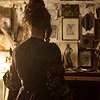Part 2
Could you take us through a day in your life, from a possible morning routine through to your work? Do you have a fixed schedule? How do writing and other aspects of your life feed back into each other - do you separate them or instead try to make them blend seamlessly?
I read every morning, with notebook beside me. Unless I am in the midst of the actual writing stage of the essay, I do not write at my desk daily. But I carry the notebooks around with me, so that new connections and new material I find can be noted down for use when I am ready to start the actual writing.
I suppose the writing process is, thus, not disconnected from my life, but in truth there are times when practical matters take over to such an extent that I lose contact with the writing for long periods. The seamless living-in-thought-and-word mode is an ideal, alas, not regularly maintained.
Can you talk about a breakthrough publication in your career? Why does it feel special to you? When, why and how did you start working on it, what were some of the motivations and ideas behind it?
I was a lapsed academic when I decided somehow to start writing more personal, literary essays. I think I wanted to make some of the ideas I had written about in my scholarly book, The World as Metaphor in Robert Musil’s ‘Der Mann ohne Eigenschaften’ more available to the general reader, to human beings. I had been circling around certain philosophical ideas for a long time and wanted to write a book about what I kept calling “Spirit” and “Matter.” I had a list of essay topics, including the Book as Magical Object, and started reading around about the history of books and the problem of virtuality.
And then somehow an anecdote about my nephew asking me to teach him to fly when he was a small boy popped into my head, and that story became the beginning of the essay—something personal became the illustration for an abstract idea about the idea of magic as a link between the material (the book object) and the spiritual (ideas, imagination). I sort of slipped into a style of writing, combining personal experiences, research, and philosophy.
A wonderful editor named Stephen Corey, at The Georgia Review, agreed to publish it if I would do some revisions, and, voila, I had published my first literary essay. I subsequently published other essays under Mr. Corey’s editorial direction, and then won the Missouri Review’s Jeffrey E. Smith Editors’ Prize for Non-Fiction and, at about the same time, a fellowship at MacDowell, all of which gave me the permission and time I needed to think of myself as a real writer and to continue writing the essays which make up my collection, Portals: Reflections on the Spirit in Matter.
There are many descriptions of the ideal state of mind for being creative. What is it like for you? What supports this ideal state of mind and what are distractions? Are there strategies to enter into this state more easily?
I am a spoiled writer. I like a large margin between my creative state and everyday distractions. I like to get deeply into something, over a long period of time, and walk around breathing and dreaming it. I also like liminal states, like travel, where my main work is to be and to observe, where I am separated from the everyday, and ideally even from people whom I love and who might need something from me. Solo travel. Trains and boats and airports and walking in foreign cities and strange places. Museums almost always incite ideas.
On a regular basis, when traveling and museum going are not possible, books are the surest, handiest portals to creativity. I suppose this is an example of what I say above and below about the Self and the Other. I think my creativity demands a clash between what I know and what I don’t yet know. It is an erotic conjunction. Love’s function, cummings said, is to fabricate unknowingness. Art’s too, I think.
Words can heal, but they can also hurt. Do you personally have experiences with either or both of these? Where do you personally see the biggest need and potential for literature and poetry as a tool for healing?
I personally need to write in order to explain the pain of the world to myself and others; to find a way to understand how it is that humans can be both so cruel and so tender—and I don’t mean just other humans. I mean all of us, myself included. When the world’s dissonances become too much for me, I struggle to find ways to bring them into some form where they are bearable, understandable, beautiful in some way, for myself and others. My job is to love the world as it is, with all its pain and ugliness and stupidity and random horror and hopefully help others do this too.
I am not sure, however, about the idea of art as a realm of healing exactly; art can help us understand each other and help us bear what seems unbearable, and of course it makes the world less lonely and more companionable, more meaningful at best; but its job is not, I don’t think, to right wrongs or correct injustices.
There is a fine line between cultural exchange and appropriation. What are your thoughts on the limits of copying, using cultural signs and symbols and the cultural/social/gender specificity of art?
As mentioned above, I find the idea that “cultural appropriation” is something to avoid dangerous to art itself, and to our shared humanity. I don’t think there should be any checks whatsoever on an artist’s imagination.
All art is appropriation, cultural or otherwise—but that is not a bad thing. Ideally, the artist’s appropriation comes from love and compassion, not from an impulse to demean or belittle, but all emotions (including hate) have their place in art and in life. To cleanse art of its barbs and its dark moments would be to turn it into a Hallmark greeting card or a tool for some dystopian political vision. To expect artists to write only about their own experience would be to divest art of its visionary potential. Kafka wrote his novel, Amerika, without ever having gone to the United States. It came from his imagination, from his perception, his fantasy of what was across the ocean. That is wonderful, not destructive.
As mentioned above, I think the greatest creative cocktail is a combination of authentic knowledge of Self and an involvement in one’s anti-Self, the Other. When I see prohibitions about “appropriation” I think of Wilde’s statement, “Those who find ugly meanings in beautiful things are corrupt without being charming. This is a fault. Those who find beautiful meanings in beautiful things are the cultivated. For these there is hope. They are the elect to whom beautiful things mean only Beauty. There is no such thing as a moral or an immoral book. Books are well written, or badly written. That is all.”
In the end, a great harm will be done to humanity as a whole if we continue to repress creative impulses, police expression, and impose limits on the imagination.
Literature works with sense impressions in a different way than the other arts. How do you use them in your writing? From your experience, what are some of the most inspiring overlaps between different senses - and what do they tell us about the way our senses work?
Words, for one thing, can be as sensual and emotionally evocative as visual images. Most words are magical packages that conceal their metaphoric content only insofar as we forget their etymology. “Caper” comes from the goat who leaps and prances; “dandelion” from the teeth of a lion; “tree” may come from “true,” which means straight, upright. Even if we are not conscious of these origins, they affect us, subliminally.
Not only are many words images, but other technical aspects such as tempo, lyrical dynamics, space and concentration, sound, alliteration, assonance, repetition, rhyme, etc., arouse us sensually in ways that are difficult to measure but wonderful to experience.
Art can be a purpose in its own right, but it can also directly feed back into everyday life, take on a social and political role and lead to more engagement. Can you describe your approach to art and being an artist?
Art has a social role, to be sure. But not as a tool to be instrumentalized for any one political or social goal. When we attempt to use art in that way, we diminish its irreducible powers, its potential for human liberation and imagination and communication. Art is tied to ethics—i.e., a realm of shifting, personal, reality-relevant decision-making and agency—but it is anathema to morality—the realm of fixed, pre-determined conceptions of right and wrong.
I feel an ethical imperative to express what I see and feel and conceive honestly, and authentically—which does not, of course, preclude inventing fictions that express that truth. To be fully human in this way, to insist upon the freedom to imagine anything at all is itself is a political, social act.
What can literature or poetry express about life and death which other forms of art may not?
I think all art has the same kind of capacity for expression. Literature and poetry, of course, use words, which are particularly connected to our conscious perception of things (logos-logical), but their most important work may be in the realms that are a-logical, in the same realms, in other words, that other arts harness to express the dynamic of life and death, beginning, and ending, chaos and harmony, longing and fulfilment, and on and on.






